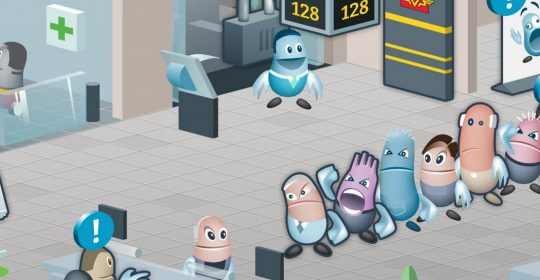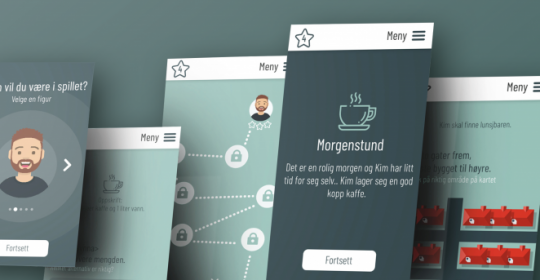«I thought I could organise freedom. How Scandinavian of me.»
Published: 3rd January 2020By: Lasse Hamre
Many of you who were the coolest in the nineties will recognise these lyrics from Bjørk's song, “Hunter”. Some time ago, I participated in a panel on digital learning at The Shard in London. One of the women in the room asked the question "How can I personalise our learning offer without succumbing to the workload?" It was at this moment that Bjørk rose from my subconscious with this famous lyric.
Personalisation is an important trend. The goal is for employees to receive a tailored development opportunity. For the woman who asked the question in London, the idea of personalisation triggered a tangle of intricacies. First, she had to have an HR system that was always up to date. Then everyone had to have their own competence profile, and they also had to be up to date. Then she had to catalogue all the content, because in the end it had to be matched against the individual profile. And voila! – Here is your personalised learning offer. In theory, that would be a ton of work. In reality, it would be much more, by an insane degree. Here, the major IT suppliers can revel in the fear of organisational chaos and offer systems that seem to create order in the knowledge.
Learning is one of our great freedoms
It’s just that the questioner’s problem is based on a misunderstanding of what learning is. Here we can learn from Bjørk. Learning is one of our great freedoms, a freedom that is the responsibility of the individual. No one can decide that you must learn, just as no one can decide that you must not learn. It’s up to you to decide.
What would have happened if she instead left the responsibility for personalisation to the employee? It is the employee who experiences the need, and they can easily find the answer themselves. With the internet, a question can be asked to the whole globe. The body of knowledge is enormous and breaks the framework for any competence management system.
First clarify your concept of good learning
In our projects, we often start by clarifying the customer’s views on learning and development. Do they think that freedom and learning are connected or are they more concerned with control? In many cases, the customer discovers that their view of learning is not related to the systems and routines they have established. With the help of new technology, positive forces in the existing culture and the people who do the work, we open up alternative and more effective ways of learning. The result is greater competitiveness and a better working environment.
An effective organisation depends on a certain order, while learning rises from the creative chaos. It may be appropriate to recall Bjørk’s words before your next reorganisation.
Photo: F de Falso, Creative Commons




